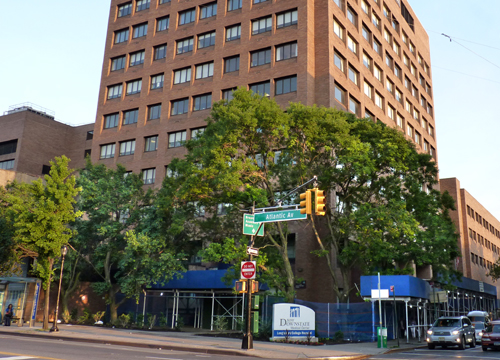LICH – SUNY deal OK’d with addition: Brooklyn judge retains jurisdiction over Othmer Endowment
Justice Carolyn Demarest stays in the game to the end

The deal clearing the way for a new operator for Long Island College Hospital (LICH) in Brooklyn moved closer to the finish line on Monday, as the settlement gained the signatures of all the key parties, including state Supreme Court Justice Carolyn Demarest.
While the historic agreement was brokered under the oversight of state Supreme Court Justice Johnny Lee Baynes, Justice Demarest has been overseeing other proceedings concerning SUNY’s stewardship of LICH since it acquired the hospital in 2011. These include the murky status of millions of dollars borrowed from the $140 million Othmer Endowment Fund at LICH.
Sources told the Brooklyn Eagle on Monday that before signing the LICH – SUNY settlement papers, Justice Demarest made two handwritten changes, which all parties agreed to in her chambers.
